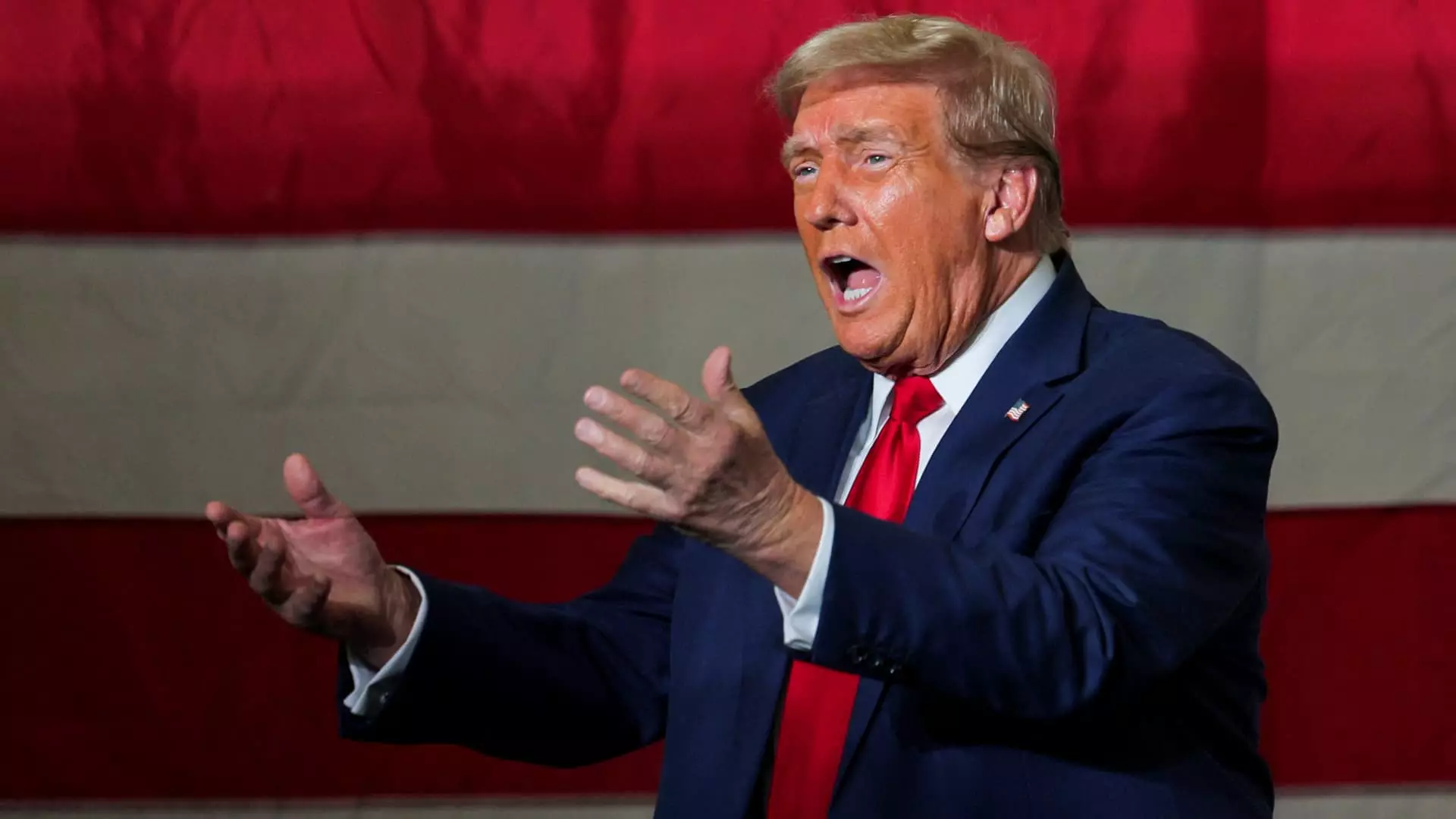The political landscape in the United States is as charged as ever, particularly as former President Donald Trump finds himself at the nexus of legal scrutiny following the 2020 presidential elections. Recently, a federal judge lifted the veil on a significant filing by Special Counsel Jack Smith, which details the charges against Trump in his alleged attempt to overturn the election results. This monumental 165-page document offers a rare glimpse into the intricate web of actions that comprise the foundation of Smith’s case, presenting not only legal arguments but also insights into the behavior of various individuals involved.
The Challenge of Presidential Immunity
A compelling aspect of the document is Trump’s assertion of presidential immunity—a claim that has gained some traction in light of a Supreme Court ruling earlier this year. However, Smith’s filing strongly counters this argument, asserting that Trump’s actions were not official conduct but rather driven by private motives. The Special Counsel emphasizes that despite being the sitting president, Trump was acting as a candidate engaged in a scheme meant to manipulate the democratic process. This distinction exposes the fissures in the argument for immunity and suggests that the rule of law should prevail, irrespective of Trump’s former capacity.
As the case evolves, the implications are monumental. Should Trump emerge victorious in the upcoming 2024 election, he could potentially leverage this position to seek an outright dismissal of the charges he faces. This scenario raises pressing questions about accountability and the integrity of the justice system when faced with presidential authority.
One of the most startling revelations from the unsealed filing is the suggestion of coordinated efforts to sow confusion during the election process. The document alleges that Trump’s campaign operatives actively engaged in tactics designed not to clarify results but to incite chaos at polling locations. An incident in Detroit on November 4, 2020, serves as a poignant example. The filing chronicles a conversation between a campaign staffer—whose identity remains undisclosed—and a colleague, reflecting a mindset devoted to undermining the electoral process rather than ensuring its integrity.
Furthermore, the language used in these exchanges is striking; instructing peers to find reasons to challenge unfavorable vote counts and openly inciting unrest is not just alarming but emblematic of a move away from democratic principles. These claims depict a concerted effort to manipulate the legal and electoral frameworks of the United States, a stark violation of trust placed in public officials.
In a narrative that juxtaposes loyalty against reason, the filing also illustrates the often fraught dynamic between Trump and then-Vice President Mike Pence. Pence’s attempts to guide Trump toward accepting the election results reveal a complicated mix of camaraderie and concern. Throughout the post-election period, Pence reportedly made several private efforts to persuade Trump to acknowledge the reality of his defeat. This tension culminated in conversations aiming to provide Trump a graceful exit from his electoral challenges while still preserving his political future.
The dialogues shared in the court documents present Pence’s investment in Trump’s political legacy while also hinting at the strain that the election results placed on their partnership. Trump’s dismissive responses underscore a refusal to engage with reality, further deepening the rift in the Republican hierarchy even as the political landscape shifts.
The unfolding events surrounding the investigation into Trump’s actions post-election not only highlight a singular legal battle but also serve as a broader commentary on the state of American democracy. As citizens wrestle with the implications of political figures invoking claims of immunity in matters of ethical misconduct, the integrity of elections remains a foundational concern.
The America that emerges from this tumultuous chapter will likely redefine themes around accountability and the dynamism of political power. Whether Trump’s claims of immunity can withstand judicial scrutiny may ultimately inform how future leaders engage with their electoral responsibilities, as well as how the American public perceives the sanctity of fair elections.
As the 2024 election draws near, with Trump poised to face Vice President Kamala Harris, the electorate must grapple with the complex interplay of campaign strategies, legal challenges, and personal accountability shaping this crucial juncture in United States history. The layers of this narrative will continue to unfold, challenging the very notions of governance, rule of law, and the democratic process itself.


Leave a Reply